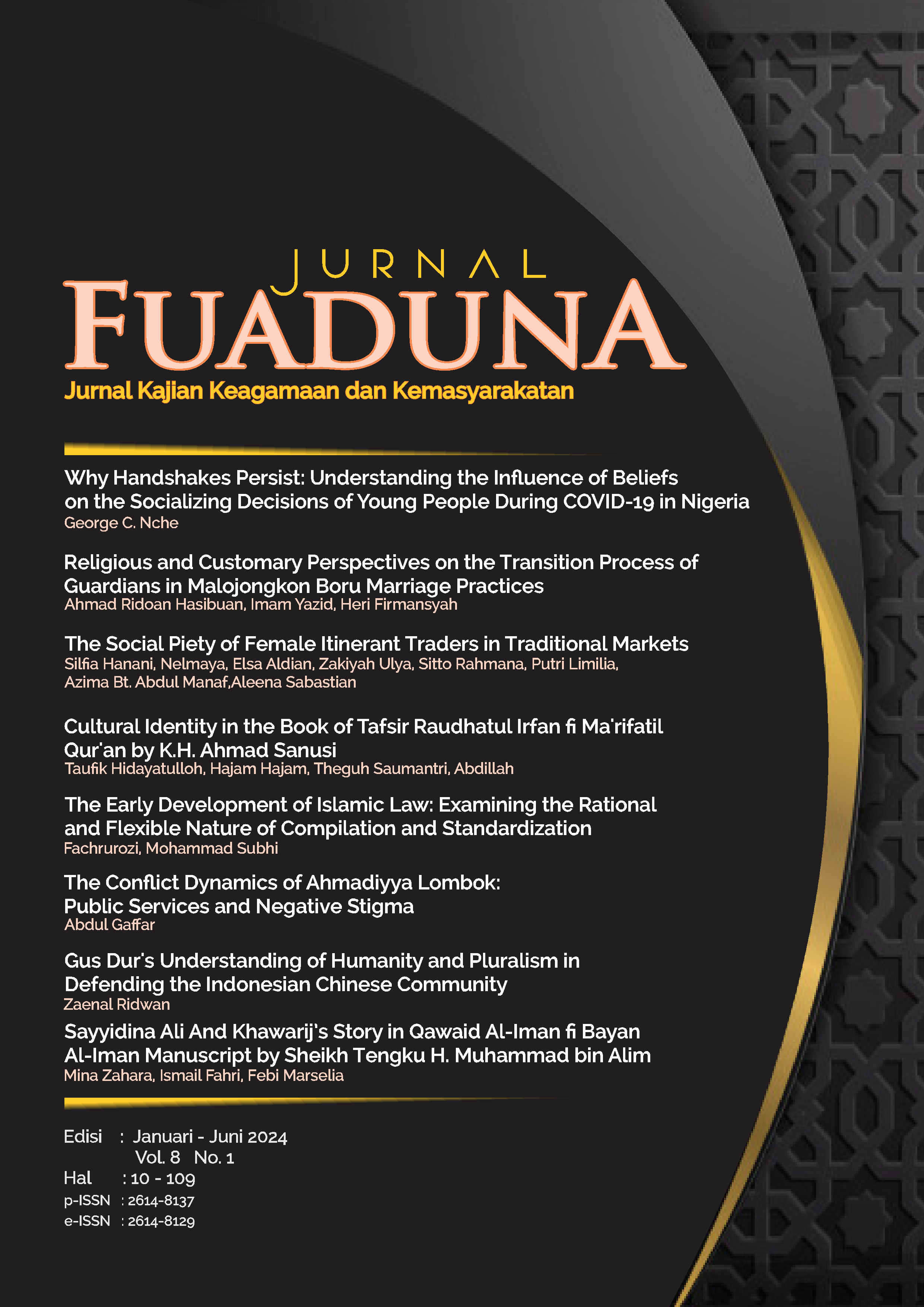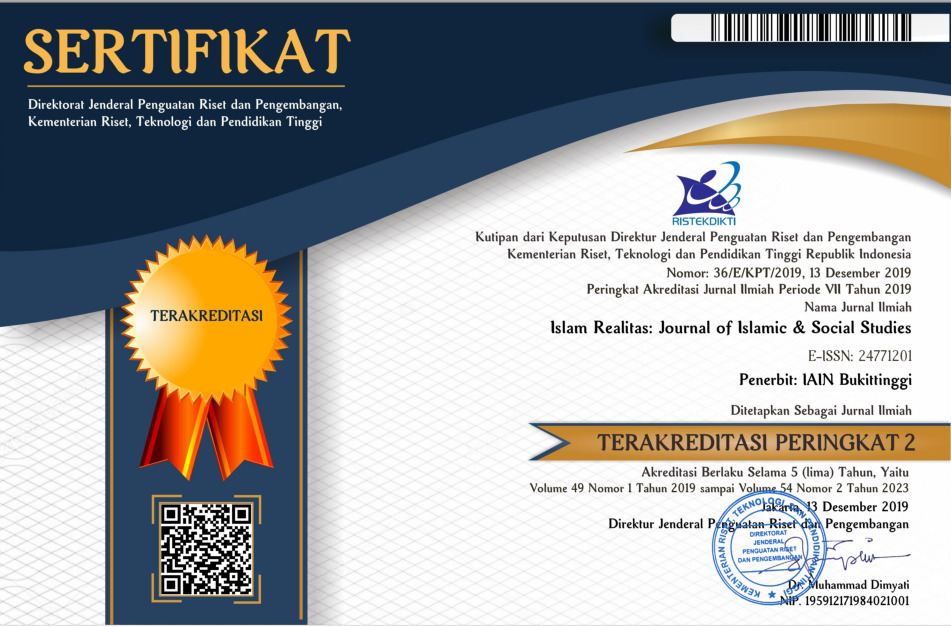The Social Piety of Female Itinerant Traders in Traditional Markets
DOI:
https://doi.org/10.30983/fuaduna.v8i1.8452Abstract
This study examines changes in the social piety of female itinerant traders in traditional markets in the Minangkabau matrilineal cultural context in West Sumatra. Village religious traditions, common among non-mobilized women working as farmers, are compared with market religious traditions, which emerge among women working as itinerant traders. The change from the agricultural sector to the market sector influenced women's religious practices, from traditions characterized by mechanical rural norms to an organic and materialistic market orientation. This study uses holistic observation methods in two traditional markets and in-depth interviews with female itinerant traders. Findings suggest that the economic mobility of itinerant women traders creates different dynamics of social piety, with heterogeneous market interactions influencing their understanding and practice of religion. The piety formed reflects social solidarity and adaptation to changing economic conditions, with primary indicators including helping, lending and borrowing capital, almsgiving, and trade integrity. This activity shows that religion plays a role not only as a spiritual guide but also as a motivator and regulator in economic and social life. This study sheds light on how economic dynamics influence women’s religious and social lives in Minangkabau, emphasizing the necessity of understanding cultural and economic changes within a broader social context.
Downloads
Published
How to Cite
Issue
Section
Citation Check
License
Copyright (c) 2024 Silfia Hanani, Nelmaya Nelmaya, Elsa Aldian, Zakiyah Ulya, Sitto Rahmana, Putri Limilia, Azima Bt. Abdul Manaf, Aleena Sabastian

This work is licensed under a Creative Commons Attribution-ShareAlike 4.0 International License.
Authors who publish with this journal agree to the following terms:
- Authors retain copyright and grant the journal right of first publication with the work simultaneously licensed under a Creative Commons Attribution-ShareAlike 4.0. that allows others to share the work with an acknowledgment of the work's authorship and initial publication in this journal.
- Authors are able to enter into separate, additional contractual arrangements for the non-exclusive distribution of the journal's published version of the work (e.g., post it to an institutional repository or publish it in a book), with an acknowledgment of its initial publication in this journal.
- Authors are permitted and encouraged to post their work online (e.g., in institutional repositories or on their website) prior to and during the submission process, as it can lead to productive exchanges, as well as earlier and greater citation of published work (See The Effect of Open Access).





